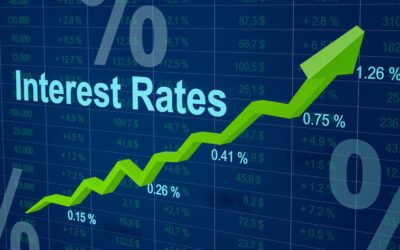For some people, credit is irresistible. Don’t have enough cash to buy that new outfit you have your eye on, or bag yourself the latest smartphone, or pay for a holiday? No problem. Just stick it on a credit card. Or choose a buy now, pay later deal. Or take out a personal loan.
It feels like free money.
Except, of course, it isn’t free. You still have to pay, just later. And that’s when the problems can start.
How many of us maxed out our very first credit card when we were young, and only realised we couldn’t afford the minimum repayment when our first bill came through because we hadn’t factored in the interest?
It sounds like the kind of innocent youthful mistake we all make with money. But it has consequences. If you make the same kind of mistakes several times over, those consequences can follow you for a long, long time.
We’re talking, of course, about credit ratings. Failing to keep up with the terms of any kind of credit arrangement, be it missing the deadline for a credit card repayment or not being able to pay the agreed amount on a loan, can negatively affect your credit score.
So what exactly does that mean?
Suitability for credit
Credit ratings are used by the finance industry to evaluate a customer’s suitability for credit. In theory, every person who ever applies for a loan or a credit card or a mortgage etc has a credit rating. The system is administered by organisations known as Credit Rating Agencies (CRAs). Finance companies share information with CRAs so they can make credit score assessments of individuals.
The three biggest and most commonly used CRAs in the UK are Equifax, Experian and TransUnion.
The problem with defaulting on a loan or some other form of credit arrangement is that everyone finds out about it (in the financial industry, at least). It’s not quietly forgotten about – it gets reported back to the CRAs and stays on your record as a black mark against your credit score.
One indiscretion is unlikely to have much in the way of a long-term impact. But if it becomes a habit, that’s when your credit score really will be marked down. And that’s when problems occur.
For one, you will find it increasingly difficult to secure credit. Not just things like credit cards and personal loans, but bigger deals like mortgages and car financing. So again, many of us can empathise with that youngster who gets carried away with their first credit card. But repeat that mistake too often, and it can seriously harm your plans in later life when you want to buy a home or a car.
Second, credit costs more when you have a poor credit rating. Some financial companies will offer you loans and other lines of credit, but they will charge you a higher rate of interest to mitigate what they see as the greater risk you pose. They may ask you to put up assets as security, meaning that property will be forfeited if you cannot keep up with the terms of the agreement. You are also likely to find that insurance products cost more.
If you are struggling with personal debts, it’s best to take positive action as soon as possible. Contact our friendly team for a confidential chat about your situation.




